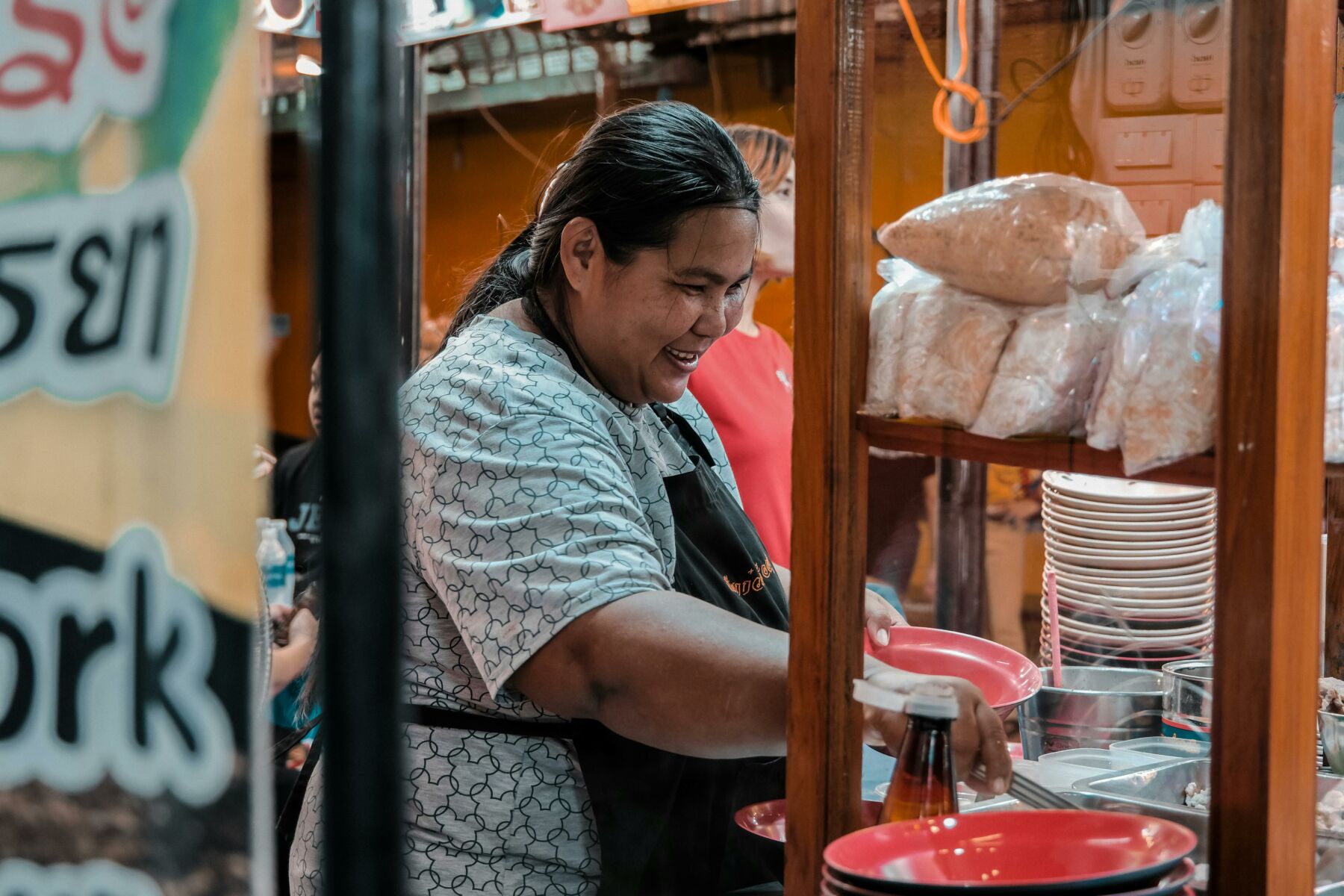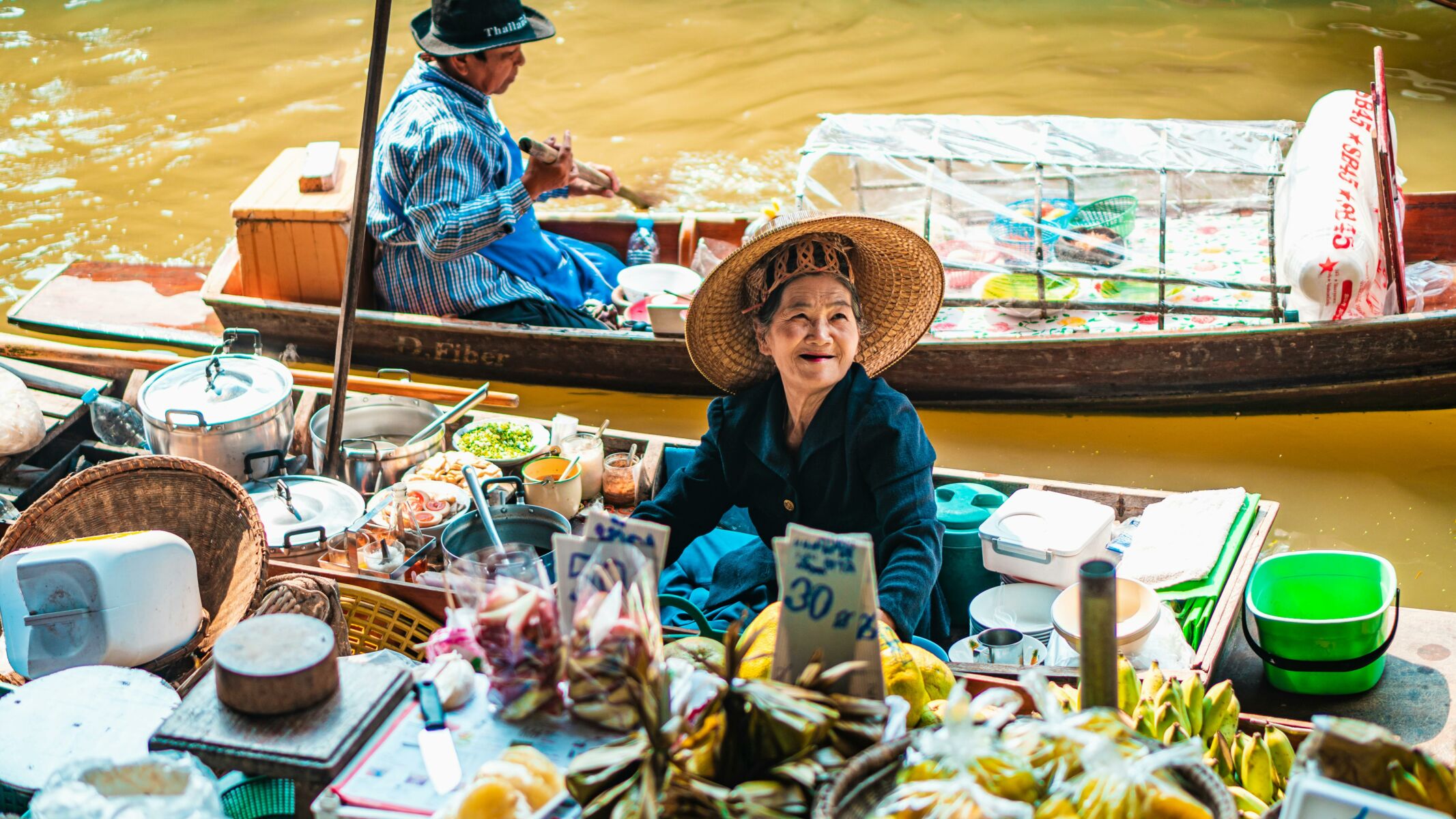How foreign friendly is Thailand?

Thailand does not bear the Land of Smiles for no reason, the Kingdom has long been known as a friendly destination, with a welcoming attitude to travellers from all across the world. Foreigners are guaranteed to have a great time on their travels across Thailand, but how foreign friendly is this Southeast Asian gem?
Overall friendliness
At the very heart of Thailand’s allure to many foreign visitors is the nation’s world-renowned hospitality. Welcoming guests is part of Thai culture, and this naturally extends to foreigners visiting the country. The cultural warmth of Thailand is felt in the genuine smiles and helpful attitudes that many visitors are sure to encounter, especially in quieter areas, less frequented by tourists.
Do keep in mind that the level of friendliness may vary between rural and urban settings. In bustling city centres such as Bangkok, the fast-paced city lifestyle may give off the image that locals remain more to themselves, but this is generally not true. Locals are generally polite and would be more than happy to give you a helping hand. However, in more rural areas, a more open and engaging welcome awaits you. Locals are eager to share their culture and forge meaningful connections with visitors.
In the first half of 2024 alone, Thailand welcomed over 17.5 million international tourists, a testament to the nation’s enduring appeal to visitors, and a testament to Thailand’s reputation as a foreign friendly destination.
Regional differences

As previously mentioned, the foreign friendliness of Thailand isn’t uniform throughout the entire country, each region offers travellers and visitors a unique experience, albeit in the same welcoming and friendly atmosphere.
Thailand’s capital, Bangkok stands out for its unique cosmopolitan and urban atmosphere. Foreigners are sure to find a blend of cultures from all walks of life in Bangkok. Extensive international amenities and a large and welcoming expat community are embedded within the city. Bangkok is undoubtedly well developed, and its infrastructure and the abundance of English-speaking locals in the service sectors are what makes the city particularly welcoming for foreigners.
Chaing Mai, the northern Thai city is renowned for its cultural heritage and charming sights. For travellers, Chiang Mai offers a blend of traditional Thai life and modern conveniences, making it a popular destination for expats and digital nomads. Locals here are very welcoming to foreigners, eager to share their culture and forge long-term friendships.
Phuket, Krabi and Koh Samui are prime tourist hotspots in southern Thailand, unquestionably fostering a large expat community which helps in driving infrastructure developments more geared towards international visitors.
Similarly, Pattaya and Hua Hin, both coastal cities have fostered a large expat community for the very same reason as these areas strike a perfect balance between Thai culture and Western conveniences, ultimately becoming a welcoming destination for foreigners. However, as these destinations do hold the distinct title of popular tourist destinations, interactions might sometimes feel more transactional compared to less touristy areas.
In more rural areas, while English proficiency may be lower, the warmth and curiosity of locals overshadow this deficit, leading to more genuine and heartfelt interactions with foreigners. Travellers visiting rural areas often feel embraced by the welcoming nature of the communities, despite potential language barriers.
Thailand’s foreign friendly LGBTQ+ inclusiveness

Thailand’s recent commitment to inclusivity has not only bolstered its appeal as a destination for many LGBTQ+ travellers, but also further cements the country as a welcoming and friendly place. The recent legalisation of same-sex marriage in March 2024 reflects this shift perfectly. The move, in addition to previous anti-discrimination laws since 2015 marks a historic step towards equality, fostering a more friendly and accepting environment for visitors.
Public appearance is growing, and the government’s active promotion of LGBTQ+ events such as Bangkok Pride, Chaing Mai Colourful Pride, Discover Phuket Pride, and future plans to host international events reflects immense support for members of the LGBTQ+ community, firmly establishing Thailand as a welcoming and inclusive destination for global visitors.
Entry policies and visa regulations
In a bid to boost the tourism industry, Thailand’s government has implemented several visitor-friendly policies to enhance the country’s accessibility. Fostering the possibility for foreigners to basque in the welcoming and friendly allure of the nation.
The visa-free entry programme now allows nationals from 93 countries (including the UK, US, Australia, and EU nations) to stay up to 60 days, alongside the possibility of a 30-day extension, without ever needing a visa. This generous policy makes Thailand a highly attractive destination for short-term visitors, as well as those pondering a longer stay.
If your country is not included in the visa-free programme, the newly implemented Visa on Arrival scheme caters to 31 different nationalities, permitting a 15-day stay. Thailand’s continuous development of its flexible entry policies is sure to act as a catalyst for many foreigners and travellers to experience the unique welcoming and friendly atmosphere, all while facilitating ease of travel.
Similarly, the recent introduction of the Destination Thailand Visa (DTV) further cements the country’s appeal to many visitors, namely digital nomads and retirees. This visa scheme allows for stays up to five years should you ever consider a more permanent move to Thailand.
Foreign friendly tourism infrastructure in Thailand

Thailand’s extensive efforts to overhaul its foreign-friendly nature extend to significant infrastructural developments across the Kingdom, in an effort to enhance visitor experience, leaving foreigners with a long-lasting positive perception of the country’s friendliness.
For instance, in Phuket, a new monorail system is under construction, poised to connect Phuket International Airport to major areas such as Phuket Town. Expressways and potential light rail systems are also in the works to enhance accessibility for visitors and residents alike. Similarly, Bangkok also has plans to expand its extensive monorail systems in addition to airport expansion plans in the works. The capital eagerly awaits to accommodate 200 million passengers by 2025, providing easier access for international travellers as a whole.
Other programmes are also in the works. For instance, the ‘Ignite Tourism Thailand’ programme was drafted to focus on elevating the tourist experience for travellers through enhanced safety measures and the promotion of unique Thai experiences in lesser-known destinations. The programme’s mission is to bridge the gap between foreigners and awaiting friendly locals.
Efforts are also directed at the promotion of night tourism, offering a more comfortable experience after hours for visitors, demonstrating Thailand’s adaptability to the ever-changing needs of tourists.
Sustainability remains at the forefront of Thailand’s tourism ethos, with the green hotel accreditation scheme promoting eco-friendly practices in the hospitality sector, appealing to environmentally conscious travellers. The shift in focus towards a more sustainable tourism outlook ensures that the country remains a welcoming and friendly destination for years to come.
What are the challenges?
While Thailand is largely welcoming to visitors and foreigners, there are some challenges to be kept in mind, most notably the language barriers. These hurdles in communication, while not a particular concern in more tourism-centric areas, may become a larger hindrance in more remote areas with less tourism. To ensure smooth day-to-day conversation, you may have to learn some basic conversational skills to experience first-hand, the welcoming and friendly demeanours of many Thais.
More importantly, and like any country with a large tourism sector across the world, perceptions of foreigners by locals can vary. While generally positive, certain stereotypical perceptions may muddy the waters of foreign reception by many Thais. It’s best not to spare too much thought on this. However, you should still remain understanding and respectful to locals, and you also should understand that a few negative experiences are not indicative of the country as a whole. Many welcoming and friendly locals are still waiting to meet you!
Thailand’s reputation as a foreign friendly destination is well-earned. The Kingdom’s blend of natural hospitality and a welcoming community of locals will make you feel right at home. The generous visa policies and a major focus on infrastructure development are a testament to the continuous growth of its tourism industry, all done to facilitate ease of travel and connect visitors to welcoming locals. As Thailand continues to evolve, it stays committed to remaining a friendly and alluring travel destination for foreigners worldwide.
Latest Thailand News
Follow The Thaiger on Google News:


























